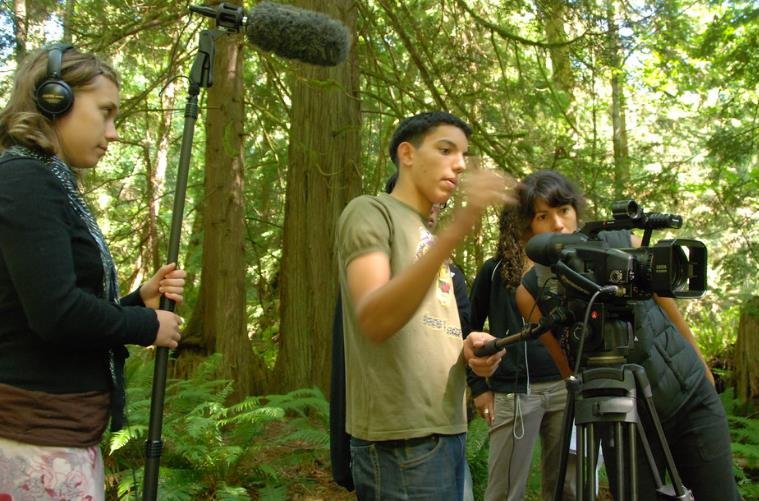The Berlin International Film Festival, or Berlinale, has been marred by controversy after an Israeli filmmaker received death threats and was accused of antisemitism for his speech at the awards ceremony. Yuval Abraham, who co-directed the best documentary winner “No Other Land”, called for a ceasefire and an end to the occupation of Palestine, sparking outrage from German and Israeli officials.
“No Other Land” is a documentary that follows the lives of Palestinians in Masafer Yatta, a cluster of villages in the south Hebron hills of the occupied West Bank. The film shows how the villagers face constant harassment, eviction and demolition by Israeli authorities, who claim the land as a military firing zone.

Abraham, a 29-year-old journalist and filmmaker, collaborated with Basel Adra, a Palestinian filmmaker based in the West Bank, to make the film. They spent two years filming the daily struggles and resistance of the villagers, who have been living there for generations.
The film won the best documentary award at the Berlinale, one of the world’s most prestigious film festivals, on Saturday. In their acceptance speech, the filmmakers expressed their solidarity with the Palestinian people and criticized the Israeli government for its policies and actions.
A speech that sparked outrage
Abraham, who is the son of Holocaust survivors, said in his speech that he and Adra live only 30 minutes apart, but under different laws and rights. He said he lives under a civilian law and has voting rights, while Adra lives under a military law and has no voting rights. He also said he is free to move where he wants, while Adra is locked in the occupied West Bank, like millions of Palestinians.
“We need to call for a ceasefire. We need to call for a political solution to end the occupation,” Abraham said. He also denounced the “situation of apartheid” and the “massacre” of Palestinians in Gaza, where Israel launched a military offensive in October that killed more than 200 people, including 67 children.
Adra, who joined the ceremony via video link, said it was hard for him to celebrate when his people were being “slaughtered and massacred by Israel in Gaza”. He urged Germany to stop selling arms to Israel and to support the Boycott, Divestment and Sanctions (BDS) movement, which seeks to pressure Israel to comply with international law and human rights.
Their speech was met with applause from some of the audience, but also with condemnation from German and Israeli politicians, who accused them of antisemitism and relativizing the Holocaust. The mayor of Berlin, Kai Wegner, said the speech was “unacceptable” and called on the festival management to prevent such incidents from happening again. He said Berlin stands firmly on Israel’s side and blamed Hamas, the Islamist group that controls Gaza, for the violence.
Ron Prosor, Israel’s ambassador to Germany, also slammed the speech as “blatant antisemitic and anti-Israel discourse” and claimed that the German cultural scene was biased against Israel. He said the filmmakers were spreading lies and propaganda and ignoring the suffering of Israelis who faced rocket attacks from Gaza.
A backlash that endangered lives
Abraham said he received death threats and had to cancel his flight home after his speech was labeled as antisemitic by Israeli media and German officials. He said a right-wing Israeli mob came to his family’s home to look for him, forcing his relatives to flee to another town. He also said he was harassed and intimidated online and offline by people who called him a traitor and a self-hating Jew.
Abraham said he was outraged and hurt by the accusations of antisemitism, which he said were not only false but also dangerous. He said the term antisemitism was being weaponized to silence critics of Israel and to devalue the meaning and memory of the Holocaust. He said he was not against Israel or the Jewish people, but against the occupation and the oppression of the Palestinians.
He also said he was disappointed by the response of the Berlinale, which he said did not defend him or his film, but instead issued a statement that said the festival was not responsible for the opinions expressed by the filmmakers. He said he expected more support and solidarity from the festival, which he said was supposed to be a platform for artistic freedom and social justice.
Abraham said he was not afraid to speak his mind and to stand for his values, even if it meant facing backlash and threats. He said he hoped his film would raise awareness and empathy for the plight of the Palestinians and inspire people to take action for peace and human rights.
